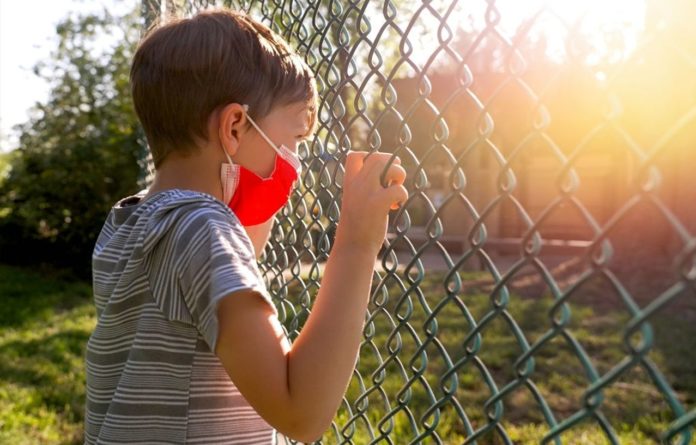COVID-19-infected children with poorly controlled asthma are more likely to require hospitalization than children with well-controlled asthma or those without asthma.
The national study is the first of its kind, and it looks at COVID-19 hospitalization in children aged 5 to 17 in Scotland between March 2020 and July 2021.
According to the findings, which were published in The Lancet Respiratory Medicine journal, current UK recommendations to offer COVID-19 vaccination to all 12–17 year olds should now be expanded to include children with poorly controlled asthma aged 5 and older, which accounts for an estimated 109,488 children in the UK.
The study authors stressed that prioritizing this group of children for COVID-19 immunization has significant consequences for vaccine distribution globally, as it reduces the likelihood of COVID-19 infection, related sickness, and, as a result, the requirement for children to miss school.
However, the chance of children with asthma being critically unwell as a result of COVID-19 is minimal, with 1 in 380 children with poorly managed asthma hospitalized as a result of COVID-19 in the trial.
“Understanding which children with asthma are at increased risk of serious COVID-19 outcomes is critical to ongoing policy deliberations on vaccine prioritisation”, said lead author Professor Aziz Sheikh from the University of Edinburgh, Scotland.
“Our analysis provides the first national evidence of the risk of COVID-19 hospitalisations among school-aged children with markers of poorly controlled asthma.”
He further added: “The key takeaway from this study is that keeping children’s asthma under control is critical as this greatly reduces the risk of COVID-19 hospitalisation. Vaccinating those with poorly controlled asthma offers an additional important layer of protection from serious COVID-19 outcomes.”
Asthma is one of the most prevalent chronic childhood diseases, impacting an estimated 78 million children aged 5–19 worldwide in 2019, with over 1 million children treated for asthma in the United Kingdom alone. Asthma has a variety of factors that might result in quick deterioration or chronic symptoms (eg, shortness of breath, coughing, and wheezing). Respiratory viruses are a common cause of asthma, particularly in children. Despite evidence that people with poorly controlled asthma are more likely to be seriously affected by COVID-19, there is a lack of studies in children, and no population-based analyses have been conducted yet.
The analysis included 752,867 children aged 5-17 years. Among 63,463 children (8.4%) diagnosed with asthma, 4,339 (6.8%) had a confirmed SARS-CoV-2 infection, and 67 (1.5%) were hospitalized with COVID-19. Nine children with asthma were admitted to intensive care or died, precluding a full study of these most severe outcomes. Overall, 40,231 (5.8%) of children without asthma had a confirmed SARS-CoV-2 infection, with 382 (0.9%) requiring hospitalization because of COVID-19.
The study discovered that children aged 5-17 with poorly controlled asthma (defined as having been hospitalized with asthma within the previous two years) were more likely to be hospitalized with COVID-19 (548 COVID-19 hospitalizations per 100,000 children) than children with well-controlled asthma (94 COVID-19 hospitalizations per 100,000 children) or children without asthma (55 hospitalizations per 100,000 children).
Similar analyses were conducted using one or more courses of oral steroids (a medicine routinely used to treat asthma attacks) over the preceding two years as a marker for uncontrolled asthma. Children aged 5–17 years with uncontrolled asthma were more likely to be hospitalized due to COVID-19 (94 and 231 hospitalizations per 100,000 children for one and two courses, respectively) than children without asthma (94 and 231 hospitalizations per 100,000 children for one and two courses, respectively) (54 hospitalizations per 100,000 children).
After adjusting for known risk factors for serious COVID-19 outcomes, such as age, sex, socioeconomic status, other illnesses or conditions, and previous non-asthma-related hospitalizations, researchers discovered that children who had recently been hospitalized for asthma were six times more likely to be admitted with COVID-19 than those without asthma, while children who had recently been prescribed oral steroids faced a three times greater risk.
The researchers estimate that during the study period, there were 9,124 children aged 5–17 years old in Scotland with poorly managed asthma who would have benefited from COVID-19 vaccination, and roughly 109,488 children in the entire UK.
“Although COVID-19 tends to affect children less severely than adults, our findings underscore the importance of carefully monitoring these children if they become infected with COVID-19 and ensuring that children take their preventive inhalers regularly, go for asthma reviews, and have an up-to-date asthma treatment action plan”, said co-author Dr Ting Shi from the University of Edinburgh.
“More research is needed to investigate the underlying mechanisms that predispose children to these increased risks of COVID-19 hospitalisation.”
The authors acknowledge that their study has limitations, including the fact that they relied on surrogate signs of recent asthma hospitalization or oral steroid prescription, which may not precisely identify all children with poorly managed asthma. Additionally, asthma control may have changed over the two-year study period as a result of changes in behavior or availability to care during the pandemic. Additionally, the authors note that they were unable to account for several potentially significant confounders (such as tobacco exposure, unsuitable housing, and ethnicity) due to a lack of reliable documentation of these social variables in electronic health records—which may have influenced the results.
Source: https://doi.org/10.1016/S2213-2600(21)00491-4
Image Credit: iStock
You were reading: Children with poor asthma control are at an increased risk of severe COVID infection, leading to hospitalization
